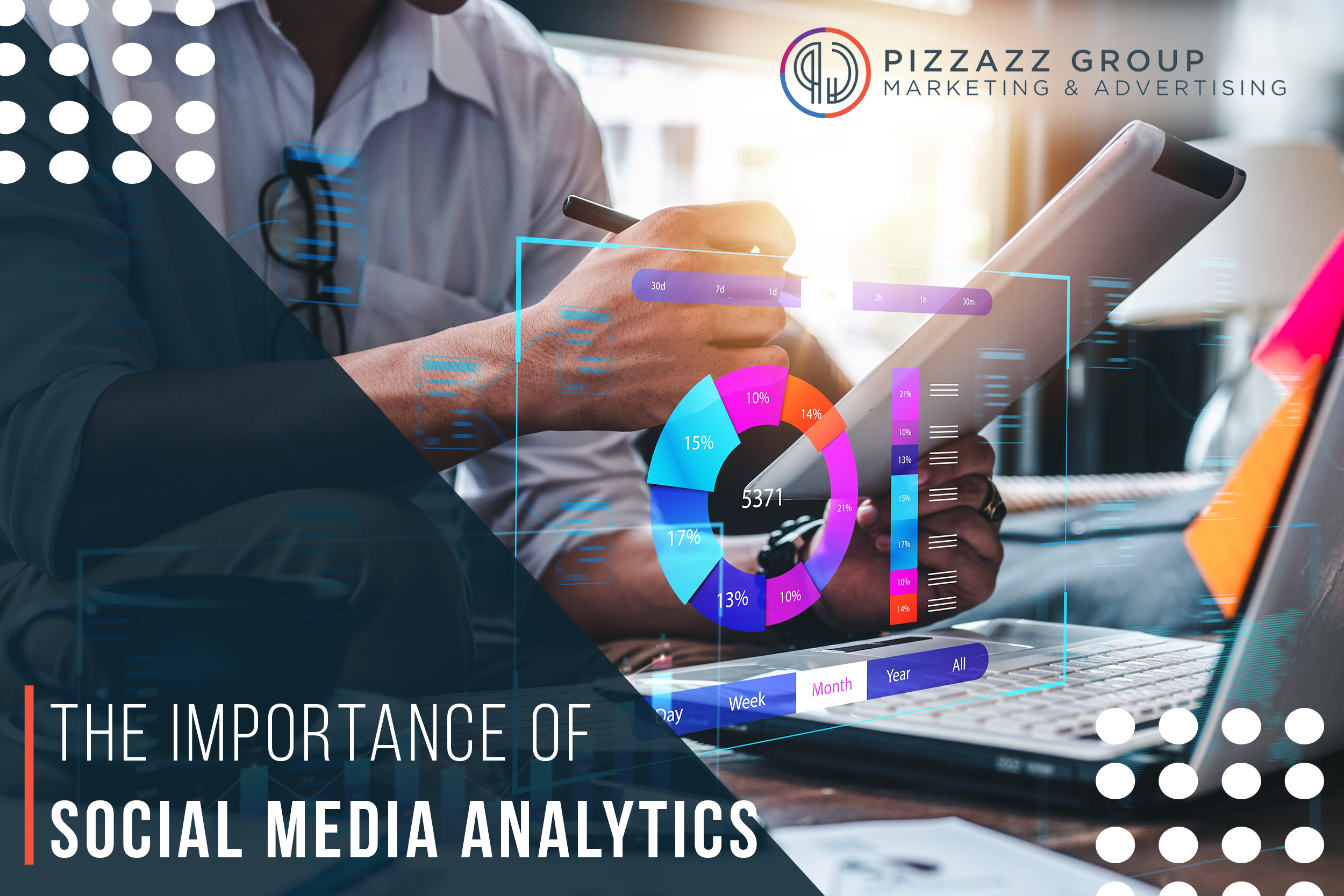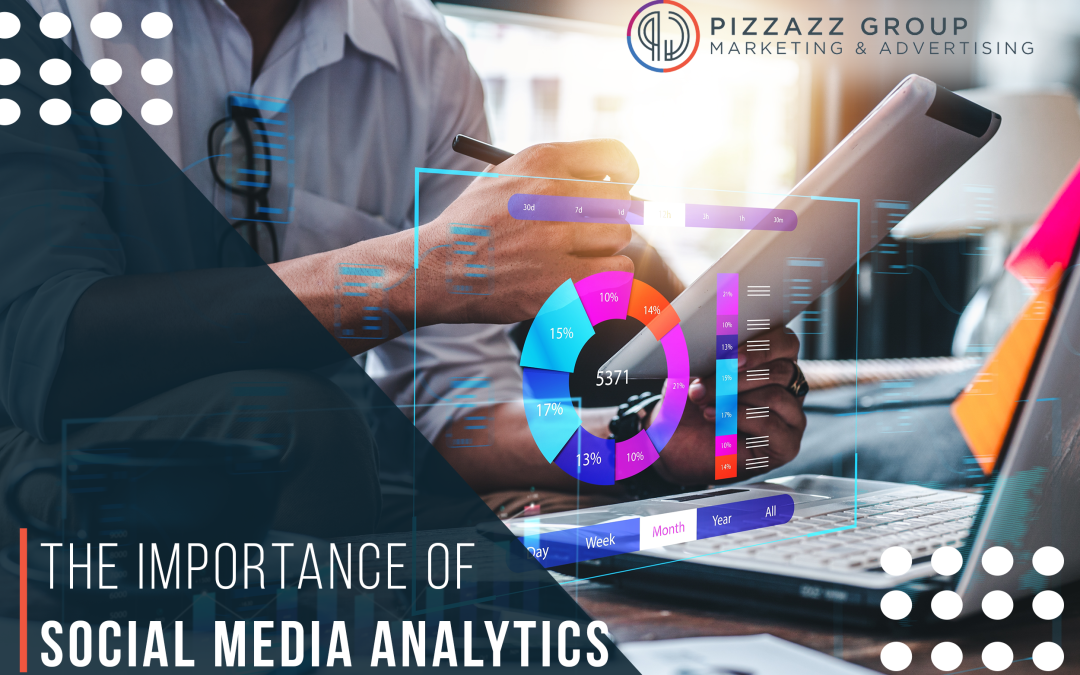
Focusing on social media analytics gives us the ability to understand the level of success of a social media campaign. By harnessing the insights derived from analytics data, organizations can make informed decisions, optimize their strategies, and achieve their goals more effectively. This comprehensive guide explores the importance of social media analytics, its key benefits, and how businesses can leverage data to drive strategic success.
Understanding Your Audience
Social media analytics refers to the process of collecting and analyzing data from social media platforms to derive meaningful insights. These insights provide valuable information about audience behavior, content performance, campaign effectiveness, and overall social media ROI (Return on Investment). Analytics tools gather data such as engagement metrics (likes, shares, comments), reach, impressions, click-through rates, demographics, and more. This data is then analyzed to uncover patterns, trends, and actionable insights that inform decision-making and strategy development.
Focusing on social media analytics gives us the ability to understand the level of success of a social media campaign. By harnessing the insights derived from analytics data, organizations can make informed decisions, optimize their strategies, and achieve their goals more effectively. This comprehensive guide explores the importance of social media analytics, its key benefits, and how businesses can leverage data to drive strategic success.
Understanding Your Audience
Social media analytics refers to the process of collecting and analyzing data from social media platforms to derive meaningful insights. These insights provide valuable information about audience behavior, content performance, campaign effectiveness, and overall social media ROI (Return on Investment). Analytics tools gather data such as engagement metrics (likes, shares, comments), reach, impressions, click-through rates, demographics, and more. This data is then analyzed to uncover patterns, trends, and actionable insights that inform decision-making and strategy development.

Key Benefits of Social Media Analytics
1. Performance Measurement
Analytics help you measure the performance of your social media efforts against predefined goals and objectives. Whether you aim to increase brand awareness, drive website traffic, or boost sales, analytics provide quantitative data to evaluate success and identify areas for improvement.
2. Audience Insights
Understanding your audience is crucial for creating targeted and relevant content. Analytics provide demographic information (age, gender, location), interests, behavior patterns, and preferences of your audience. This insight enables you to tailor your content and messaging to better resonate with your target demographic.
3. Content Optimization
Analytics reveal which types of content perform best on each platform. By analyzing engagement metrics, you can identify top-performing content, understand what resonates with your audience, and optimize future content strategies accordingly. This includes experimenting with different formats (images, videos, infographics), tones, and topics.
4. Competitive Analysis
Monitoring your competitors’ social media performance can provide valuable benchmarking insights. Analytics tools allow you to compare metrics such as follower growth, engagement rates, and content effectiveness against industry peers. This competitive analysis helps you identify gaps, opportunities, and emerging trends in your industry.
5. Campaign Effectiveness
For businesses running social media campaigns, analytics provide real-time feedback on campaign performance. You can track metrics like reach, conversions, ROI, and cost per acquisition (CPA). This data enables you to optimize ad spend, refine targeting strategies, and maximize the impact of your campaigns.
6. Customer Sentiment and Feedback
Social media analytics also offer qualitative insights by monitoring customer sentiment and feedback. Analyzing comments, mentions, and sentiment scores helps you gauge brand perception, identify customer pain points, and address issues proactively. This real-time feedback loop fosters better customer relationships and brand loyalty.
Types of Social Media Metrics to Track
To effectively measure your social media performance, it’s important to track a variety of metrics. Here are some key metrics to consider:
- Engagement Metrics: Likes, shares, comments, retweets, and mentions indicate how users interact with your content.
- Reach and Impressions: Reach measures the number of unique users who see your content, while impressions count the total number of times your content is displayed.
- Click-Through Rate (CTR): CTR measures the percentage of users who clicked on a link or call-to-action (CTA) compared to the total number of impressions.
- Follower Growth: Tracks the increase or decrease in your follower base over time.
- Conversion Metrics: Measures actions taken by users such as website visits, form submissions, purchases, or sign-ups resulting from your social media efforts.
- Sentiment Analysis: Evaluates the overall sentiment (positive, negative, neutral) expressed in user comments and mentions about your brand.
Tools for Social Media Analytics
Several tools and platforms offer robust social media analytics capabilities to help businesses monitor, analyze, and optimize their social media performance. Here are some popular tools:
- Facebook Insights: Provides detailed analytics for Facebook Pages, including engagement metrics, demographics, and page performance.
- Twitter Analytics: Offers insights into tweet performance, audience demographics, and engagement metrics.
- Instagram Insights: Provides data on post performance, audience demographics, impressions, and interactions.
- LinkedIn Analytics: Offers metrics for company pages and posts, including engagement, follower demographics, and content effectiveness.
- Google Analytics: Tracks social media traffic to your website, conversions, and user behavior from social channels.
- Third-Party Tools: Platforms like Hootsuite, Buffer, Sprout Social, and HubSpot offer comprehensive social media management and analytics features.
How to Leverage Social Media Analytics for Success
To leverage social media analytics effectively, follow these best practices:
- Set Clear Objectives: Define specific, measurable goals for your social media efforts (e.g., increase brand awareness by 20%, generate 500 leads per month).
- Choose Relevant Metrics: Select metrics that align with your objectives and provide meaningful insights into your performance.
- Regular Monitoring: Monitor analytics regularly to track progress, identify trends, and spot opportunities or issues early.
- Benchmarking and Comparison: Compare your performance against industry benchmarks and competitors to gauge your relative position and identify areas for improvement.
- Experiment and Iterate: Use A/B testing and experimentation to test different strategies, content types, and approaches. Analyze results to refine your tactics and optimize performance.
- Data-Driven Decision Making: Use insights from analytics to make informed decisions about content strategy, campaign optimization, budget allocation, and audience targeting.
- Stay Updated: Stay informed about changes in social media algorithms, trends, and best practices to adapt your strategy accordingly and maintain relevance.
Case Study and Example
Sports Store
- Challenge: Wanted to increase online sales through Instagram but was unsure which content resonated best with athlete and outdoor activity enthusiasts.
- Solution: Analyzed their Instagram Insights data and found that posts featuring user-generated content (UGC) had significantly higher engagement rates than product photos. They also discovered that their audience engaged more during evenings and weekends.
- Outcome: Armed with this data, we adjusted their content strategy to focus more on UGC and scheduled posts during peak engagement times. As a result, they saw a 30% increase in website traffic from Instagram and a 25% boost in online sales within 3 months.
Conclusion
Social media analytics provide invaluable insights that empower businesses to make data-driven decisions, optimize strategies, and achieve measurable results. By understanding audience behavior, measuring performance metrics, and leveraging these insights effectively, organizations can enhance engagement, build stronger customer relationships, and drive business growth. Whether you’re a small business, a global brand, or an aspiring influencer, integrating social media analytics into your strategy is essential for staying competitive and maximizing your impact in the digital landscape. Embrace the power of data and analytics to unlock the full potential of your social media efforts and achieve sustainable success.
For more information on Social Media Marketing, contact Pizzazz Group at customer@pizzazzgroup.com or by calling (614) 350-1681.
Related Social Media Marketing Blogs
Small Business Social Media Tips
Creating a compelling social media presence for small businesses creates a strong connection with your customer, amplification of brand awareness, and increased sales. Here’s a comprehensive guide on small business social media tips.1. Understand Your AudienceBefore...
Building a Social Media Community
Building a thriving community around your brand, business, or personal profile is more than just accumulating followers. It involves fostering meaningful connections, nurturing engagement, and creating a supportive environment where members actively participate and...
How to Use Social Media Hashtags Effectively
When used strategically, hashtags can amplify your content's visibility, attract a targeted audience, and align with broader conversations or trends. Whether you're a business, influencer, or content creator, mastering the art of using hashtags effectively can...





